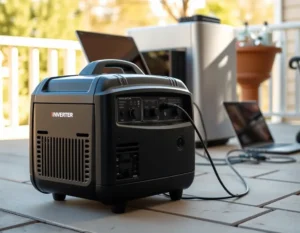
En el mundo moderno, donde la electricidad es fundamental para nuestras actividades diarias, las interrupciones eléctricas son un gran inconveniente, pueden afectar nuestra productividad y
¿Buscas el mejor generador eléctrico para tu casa? Es importante investigar antes de elegir uno. No gastes dinero en un generador de gran potencia si no lo necesitas, ni elijas uno barato de baja potencia para ahorrar, todo tiene su justa medida y las recomendaciones que te enseñaremos a continuación son una muestra de ello. En este blog te enseñaremos algunas pautas útiles para ayudarte a elegir el adecuado.
Si quieres una asesoría con expertos ingresa al siguiente botón y el equipo de JRH te atenderá lo más rápido posible.
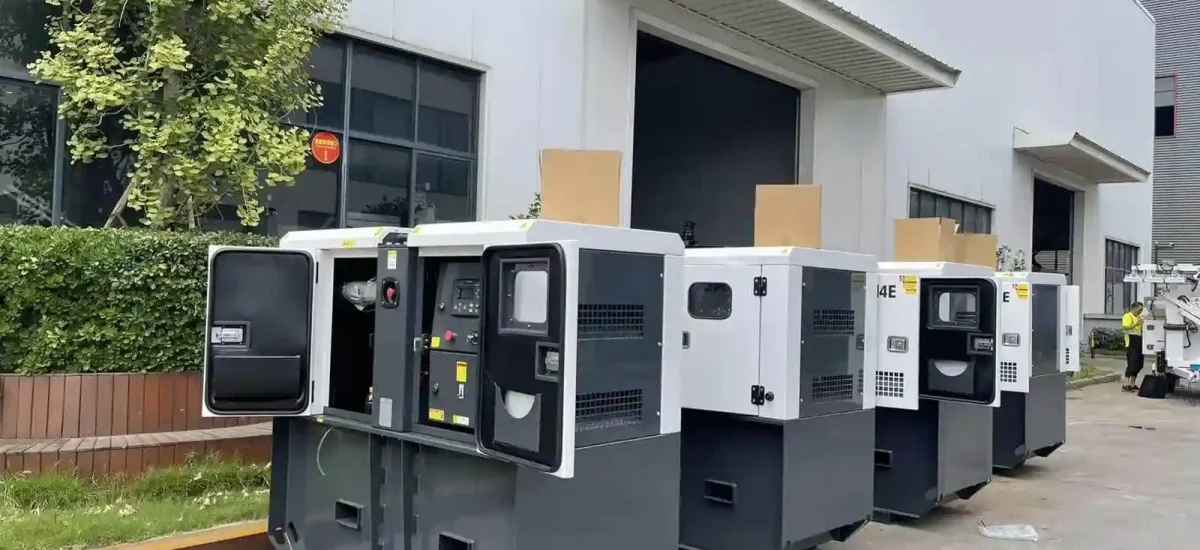
Cuando estás en la búsqueda de aparatos tan especializados como un generador eléctrico debes saber qué es, para qué sirve, cómo funciona y qué beneficios o ventajas te ofrece. Eso hace parte de una compra consciente. Un generador de luz, o generador eléctrico es una máquina que convierte la energía mecánica en energía eléctrica de forma eficiente. Si quieres conocer más acerca del generador eléctrico te invitamos a leer nuestro blog ¿Qué es un generador eléctrico y cómo funciona?
Un generador de luz para casa es un dispositivo que genera electricidad y suministra energía eléctrica a una casa o edificio durante un corte de energía. Estas máquinas pueden ser de diferentes tamaños y capacidades, desde pequeñas unidades portátiles que proporcionan energía para unas pocas luces y dispositivos, hasta grandes sistemas de respaldo que pueden proporcionar energía para toda la casa.
Los generadores de luz para casa pueden funcionar con gasolina, propano o diesel, y algunos modelos más recientes pueden funcionar con energía solar o eólica. Estas máquinas son muy útiles en áreas donde los cortes de energía son frecuentes debido a desastres naturales, como tormentas, huracanes o terremotos, o en áreas donde el suministro eléctrico es inestable, como las zonas rurales.
Al elegir un generador de luz para casa, es importante considerar varios factores para asegurarse de que el modelo que elijas se ajusta a tus necesidades. Algunos factores que debes tener en cuenta son:
La elección entre un generador de luz portátil o estacionario dependerá de tus necesidades y de cómo planeas usar el generador.
Un generador de luz portátil es una buena opción si planeas usarlo en diferentes ubicaciones, como en una casa rodante, en un campamento, en un sitio de construcción o para emergencias en el hogar. Son más pequeños y livianos que los generadores estacionarios, lo que los hace más fáciles de transportar y almacenar. Además, los generadores portátiles suelen ser menos costosos que los estacionarios.
Por otro lado, si necesitas una fuente de energía eléctrica de respaldo para tu hogar o negocio, un generador de luz estacionario puede ser una mejor opción. Estos generadores están diseñados para instalarse de forma permanente y pueden suministrar energía eléctrica a todo el hogar o negocio durante un corte de energía. También son más silenciosos y tienen mayores capacidades de combustible que los generadores portátiles.
El nivel de ruido de un generador de luz para casa puede variar considerablemente dependiendo del modelo y de su capacidad. Los generadores más pequeños y portátiles suelen ser más ruidosos que los modelos más grandes y estacionarios.
La mayoría de los fabricantes proporcionan información sobre el nivel de ruido de sus generadores en decibelios (dB). Un generador de luz portátil puede producir un nivel de ruido de entre 50 y 100 dB, mientras que los generadores estacionarios suelen ser más silenciosos, produciendo entre 50 y 80 dB.
Es importante tener en cuenta el nivel de ruido al elegir un generador de luz para casa, especialmente si planeas utilizarlo en áreas residenciales o cercanas a vecinos. Sin embargo, existen generadores que están diseñados con tecnología de reducción de ruido, como la insonorización de la carcasa y los silenciadores de escape, que pueden ayudar a reducir el nivel de ruido.
La capacidad del tanque de combustible de un generador de luz para casa es un factor importante a considerar para elegir un modelo adecuado. La capacidad del tanque determina la cantidad de combustible que el generador puede contener y, por lo tanto, la duración del tiempo que puede proporcionar energía eléctrica.
Los generadores más pequeños y portátiles suelen tener tanques de combustible más pequeños, que pueden contener de 1 a 5 galones (aproximadamente de 3,8 a 19 litros) de combustible. Los generadores más grandes y estacionarios pueden tener tanques de combustible de hasta 100 galones (aproximadamente 378,5 litros) o más.
Por otro lado, el nivel de consumo de combustible del generador es otro factor importante a tener en cuenta. El consumo de combustible se mide en galones por hora (GPH) o en litros por hora (LPH) y puede variar según la capacidad del generador y su carga. Por lo general, cuanto mayor sea la capacidad del generador y mayor sea la carga de energía eléctrica que proporcione, mayor será su consumo de combustible. Además si es un generador con el que se pretende realizar trabajos de larga duración se debe mirar el precio del combustible.
Indudablemente los generadores estacionarios, tanto los de diésel como los de gas, son enormemente más caros, sin mencionar su costo de instalación. Ofrecen mayor potencia durante más tiempo.
Son una gran opción para edificios de oficinas, centros comerciales, hospitales, hoteles y complejos residenciales. También pueden ser utilizados en fincas o granjas apartadas, en donde la maquinaria requiere de energía eléctrica de gran potencia.
Por otro lado, un entorno doméstico, que no precise de tanta potencia durante tanto tiempo (que apenas se necesite mantener funcionando la nevera o algún otro electrodoméstico durante un apagón, por ejemplo), bien podría utilizar un generador de luz para casa portátil.
La potencia es uno de los factores más importantes a considerar al elegir un generador de luz para casa. La potencia del generador se mide en vatios (W) y determina la cantidad de energía eléctrica que puede producir el generador. La cantidad de vatios que necesita tu hogar dependerá del número y tipo de dispositivos que planea alimentar con el generador.
Para determinar la cantidad de vatios que necesita tu hogar, haz una lista de todos los dispositivos que deseas alimentar con el generador y anota la cantidad de vatios que consume cada dispositivo. Asegúrate de tener en cuenta tanto la potencia de arranque como la potencia en funcionamiento de cada dispositivo. La potencia de arranque es la cantidad de vatios que se requiere para arrancar un dispositivo, mientras que la potencia en funcionamiento es la cantidad de vatios que consume el dispositivo una vez que está en funcionamiento.
Al elegir un generador de luz para casa, es importante seleccionar uno que tenga suficiente potencia para alimentar todos los dispositivos que necesitas. Si el generador no tiene suficiente potencia, es posible que no pueda alimentar todos los dispositivos que requieren o que tenga que alternar entre ellos para evitar sobrecargar el generador.
Es recomendable elegir un generador de luz para casa con una potencia ligeramente superior a la que necesita, ya que esto proporcionará un margen adicional de potencia y garantizará que pueda alimentar todos los dispositivos que necesitas. Ver más
En JRH trabajamos y vendemos con diferentes tipos de generadores de luz, contactanos y te ayudaremos a mirar cual es el más adecuado para ti.

En el mundo moderno, donde la electricidad es fundamental para nuestras actividades diarias, las interrupciones eléctricas son un gran inconveniente, pueden afectar nuestra productividad y

Las turbinas eólicas se han convertido en el emblema de la energía renovable, ofreciendo una solución sostenible y limpia frente a los combustibles fósiles. Sin
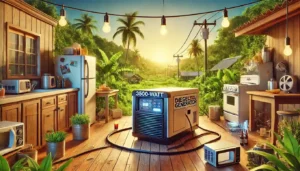
Cuando se trata de mantener la energía en situaciones de emergencia, durante viajes de campamento o en eventos al aire libre, un generador de 3500
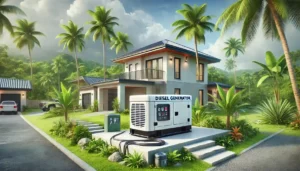
En tiempos de cortes de energía o desastres naturales, saber cómo usar un generador para alimentar una casa puede marcar la diferencia entre estar preparado
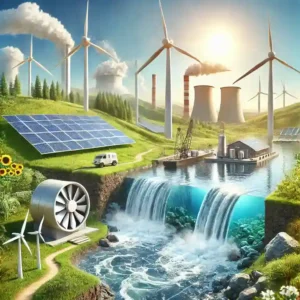
La búsqueda de energías alternativas se ha convertido en un pilar fundamental en la discusión sobre sostenibilidad y el futuro energético del planeta. Pero, ¿cuáles
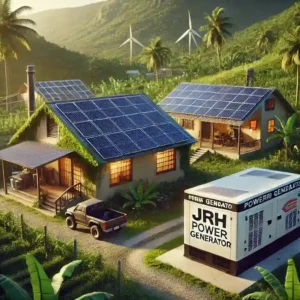
En un mundo donde la demanda de energía eléctrica sigue en aumento, las interrupciones de servicio y el costo creciente de la electricidad han impulsado